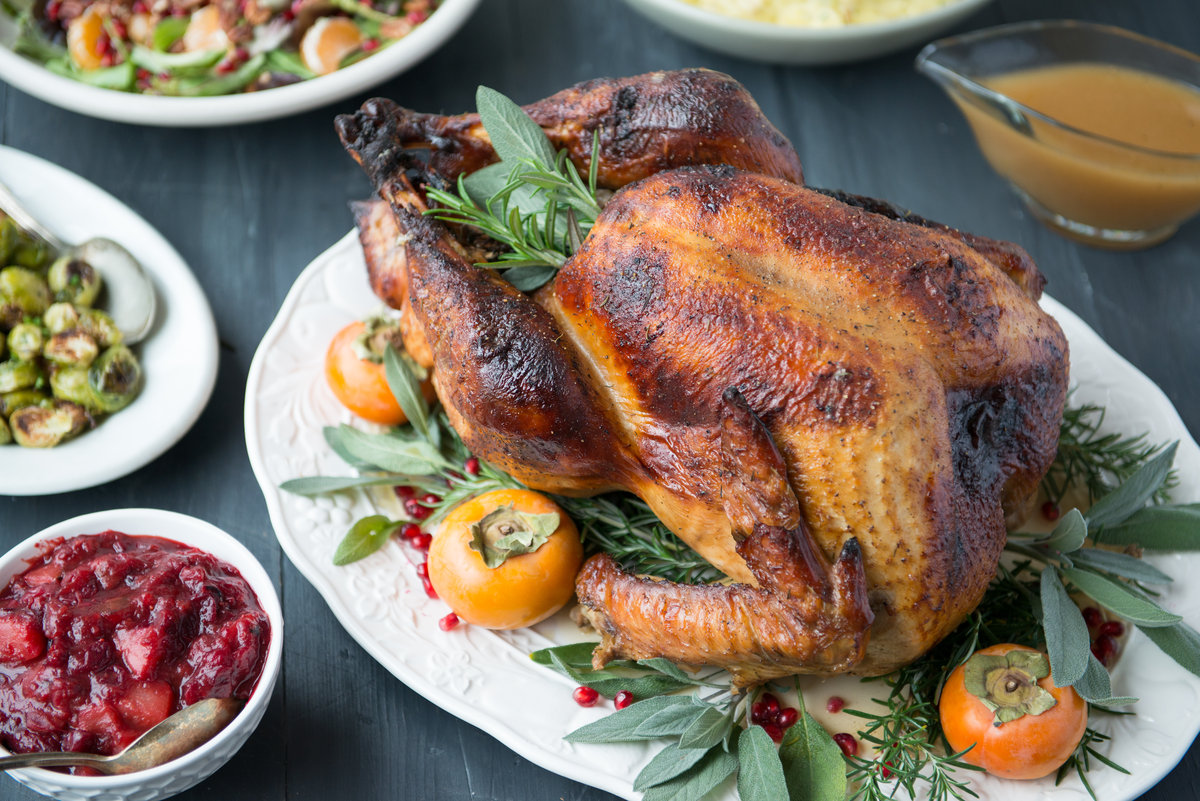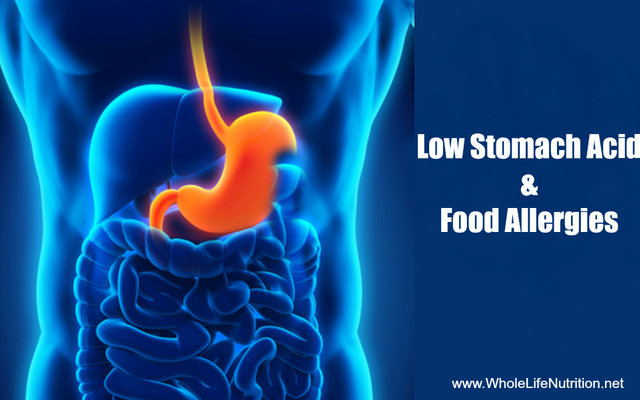by Alissa Segersten | 1 comments
Create a happier holiday experience by optimizing your digestion.
Have you ever enjoyed a large holiday meal with family and friends only to experience digestive issues that left you feeling reclusive? Eating a large meal can put a strain on your digestive system, especially for those already dealing with weak digestion. We've put together a number of things you can do before, during, and after a large meal to optimize your digestion, leaving you happier, healthier, and more able to fully enjoy your family and friends!
Life is so much richer when we savor it! Gratitude appears to be one of the keys to happiness, and being grateful for the food in front of you is no exception. By appreciating the colors, aromas, tastes, and textures of your food, you activate important hormones that assist with the digestive process—otherwise known as the cephalic phase of digestion. More gastric acid, pancreatic enzymes, and bile are released in your body to free the wonderful nutrition that is trapped in your foods. Once the nutrients are released from your foods, and absorbed into your body, your cells sigh with contentment as they receive the necessary nutrients for growth and repair. The result is a calm mind, a peaceful gut, and a healthy body. How do we reach this state of bliss? By taking time to enjoy the process. Let your mind wander about all of the amazing flavors you are about to experience. Take deep breaths to become intoxicated by the aromas of nutmeg, cinnamon, cloves, and sage. Once the food is on your plate, slowly sample each flavor and allow your salivary glands to explode with every bite. Delight in the textures of moist turkey meat and silky-smooth pumpkin pie. This will keep your digestive juices flowing!

You can fully digest a large holiday meal by incorporating bitter foods, digestive enzymes, relaxation, and carminative herbs.
Simple Ways to Optimize your Digestion for a Large Meal:
1. Before Your Meal:
Eat Bitter Foods to Stimulate the Digestive Process
By enjoying bitter foods as appetizers you begin to stimulate gastric acid secretion, gastric motility (to move any previous food you have in your gut), and CCK production (which in turn stimulates the secretion of pancreatic enzymes and bile to fully digest your meal). In fact, it's the experience of the bitter flavor on the taste buds of your tongue that stimultes the digestive cascade beginning with gastric acid secretion! Think dandelion greens, green olives, sesame seeds, radishes and other raw cruciferous veggies like cauliflower and broccoli served with a healthy dip, or a big arugula salad served at the beginning of a meal.
Add Sour Foods and Digestive Enzymes
Just before you sit down to your holiday meal you can also take a tablespoon of raw apple cider vinegar in a few ounces of water. The sour flavor can also help increase gastric acid secretion in the stomach, and without enough gastric acid you can't break down your food into smaller pieces. This leaves you susceptible to food reactions, small intestinal bacterial overgrowth (SIBO) and nutrient deficiencies. Adding in a few capsules of a high-quality digestive enzyme just before, or with your first bite of food, is also essential to being able to fully digest a large meal.
Take Away Points:
- Relax, laugh, and savor the aromas and colors of the food around you to activate your "rest & digest" mode (parasympathetic)
- Eat bitter foods like dandelion greens, arugula salads, Broccoli Sprouts, Collard Wraps, Green Cleansing Juice, and Digestive Bitters
- Take a spoonful of raw apple cider vinegar just before your meal
- Take Digestive Enzymes just before you begin your meal
2. During Your Meal:
Add Fresh Herbs for Digestion
For thousands of years, cultures around the globe have been relying on plant-based medicines to improve their digestion and assist in maintaining healthy colonies of microbes in their intestines. These medicines have been named culinary herbs. By sprinkling freshly chopped rosemary, sage, thyme, mint, and oregano onto your meal, you will be inviting age-old wisdom and flavors to optimize your digestive health. Try chopped fresh sage over your turkey and gravy; chopped fresh rosemary and parsley over your potatoes or yams; chopped fresh thyme over your roasted brussels sprouts; and chopped fresh mint or oregano over your salad.
Add in Fermented Foods
Our teeth and enzymes play a huge role in breaking down our foods. But so do our microbes. A single bacterium can produce over 100 difference enzymes to assist in our digestive process! It’s no wonder that eating fermented foods loaded with beneficial bacteria can assist in digesting a large meal.
Always Eat Your Raw Veggies!
Eating a large meal of meat and starchy foods like potatoes and grains without raw vegetables can cause intestinal permeability (also called leaky gut). Compounds in raw vegetables, like salads and other raw dark leafy green vegetables actually protect the gut and neutralize the effects of eating a “meat and potatoes” type diet. Make sure that raw leafy green salads are part of your holiday menu. Top them with fresh pomegranate arils for a beautiful presentation and added protection!
Employ the 80/20 Rule!
Well....maybe not the 80/20 rule for a holiday feast. But how about the 90/10 rule? Eating until you are 80 percent or 90 percent full leaves room for your digestive system to do its thing. If you eat to the point where you are 125 or 150 percent full (over-stuffed) you can't digest your food properly and therefore the microbes in your gut will ferment it for you. This over-eating is likely to cause a leaky gut and a pro-inflammatory state in the body (no matter how healthy the food is)!
FODMAPs
If you are one that tends to experience a lot of gas and bloating after your meals you may have a FODMAP sensitivity. FODMAPs are fermentable starches found in certain foods like apples, pears, asparagus, garlic, and onions. Usually only when the digestive system is out of balance can a sensitivity to FODMAPs occur. If this is you, we suggest skipping the apple pie at the end of your meal and choosing pumpkin pie instead. Better yet, make the pumpkin pie with baked kabocha squash instead of sugar pie pumpkins!
Take Away Points:
- Sprinkle the finished dishes of food (or the food on your plate) with fresh herbs such as rosemary, thyme, sage, mint, and parsley
- Eat fermented and cultured foods with your meal such as fermented vegetables, coconut sour cream, kombucha, and cultured coconut water
- Eat a large raw green salad with your meal such as my Holiday Detox Salad
- Choose Pumpkin Pie made with kabocha squash instead of apple pie if you experience a lot of gas and bloating (FODMAP issues)
3. After Your Meal:
Enjoy Carminative Herbs for Digestion
Following a meal with glass of peppermint or fennel tea, or a glass of water splashed with peppermint spirits, can assist in regulating small intestinal bacterial overgrowth, and also aid in expelling any gas that's formed in the intestines after your meal.
Take Away Points:
- Add Peppermint Spirits or Gastro Calm to a small glass of water to aid in digestion
- Enjoy a mug of Dandelion Root Chai Tea
- Chew on whole cardamom pods after your meal
- Drink a cup of ginger tea or peppermint tea
Looking for healthy holiday meal inspiration?
Turn to our Nourishing Meals Cookbook and Whole Life Nutrition Cookbook for hundreds of well-loved, nutritious, gluten-free holiday recipes that everyone will enjoy! My Healthy Holiday Grain-Free Treats and Raw Desserts eBook is another fabulous source for nourishing holiday recipes! Also, you can find more holiday recipes on my food blog, NourishingMeals.com. Happy Holidays!

Stay up to date with the current science and recipes that can help make your family healthy.


Comments
sprouts
by Ed Szatkowski on Tue, 08/02/2016 - 6:49am
Add new comment